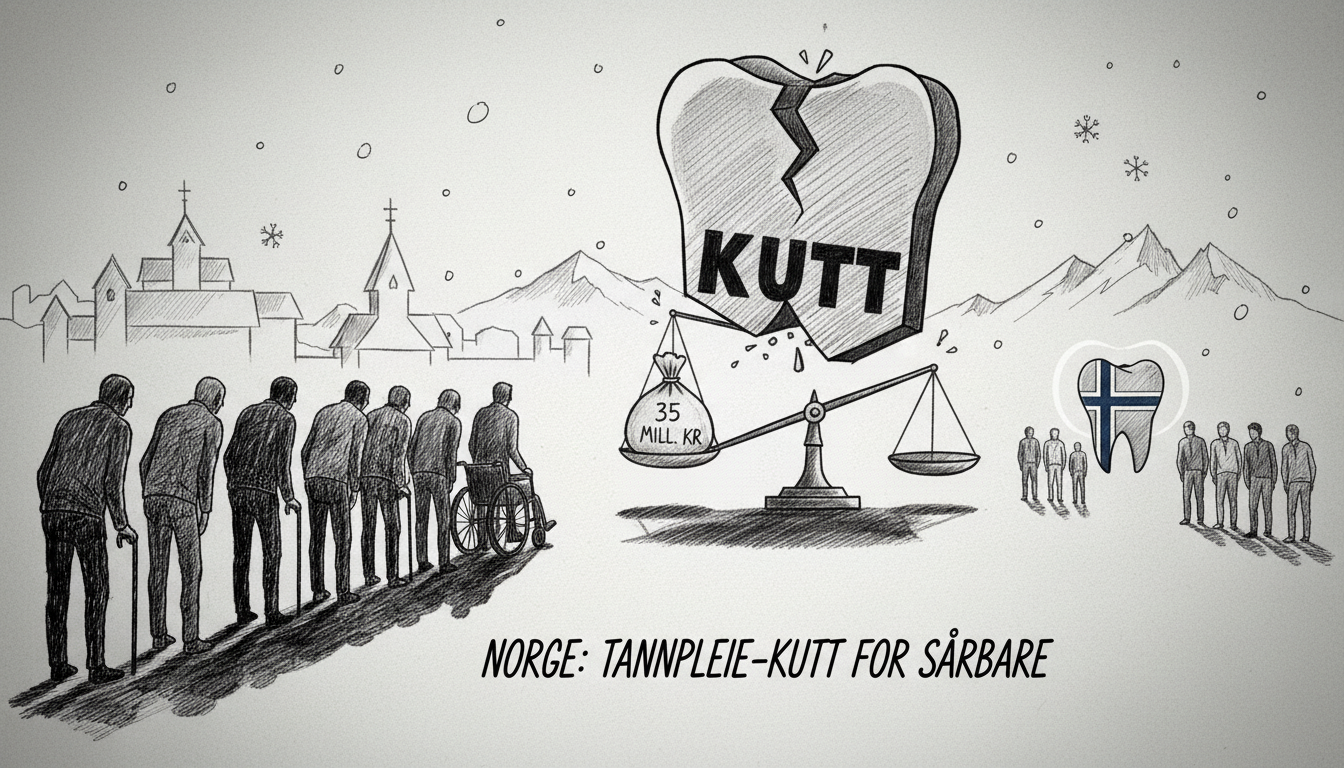The Norwegian government has proposed eliminating dental care subsidies for people with severely impaired self-care abilities starting July 2026. This controversial move comes as part of the state budget proposal and would affect approximately 7,000 patients annually who currently receive support through the National Insurance Scheme.
Bente Børstad, a Bergen resident who works as a substitute teacher, represents the type of patient who would lose coverage. She lost four fingers on her left hand and parts of fingers on her right hand due to frostbite as a child. Despite her daily dental hygiene efforts, she struggles with tasks like flossing. Her dentist confirms she cannot maintain adequate oral care independently.
The Norwegian Psychological Association president Håkon Kongsrud Skard calls the proposal incomprehensible. He states the cuts target society's most vulnerable members. The scheme currently supports people with long-term physical or mental illnesses or permanent functional impairments.
Health Ministry officials report dental care costs under this program increased by 15 percent this year and expect further increases. The government estimates saving 35 million kroner in 2026 by eliminating the support.
Norwegian Dental Association president Heming Olsen-Bergem strongly criticizes the proposal. He explains the cuts would affect people with amputations, severe rheumatoid arthritis, Parkinson's disease, or dementia. These individuals fundamentally lack the ability to care for their teeth. Olsen-Bergem emphasizes that patients must provide doctor documentation of permanent illness to qualify, indicating strict existing criteria.
Researcher Siri Flagestad Kvalheim from the University of Bergen argues the government targets the wrong group. She describes the policy as cheap political points that harm vulnerable populations while maintaining support for younger adults up to age 28. Kvalheim cites an elderly woman with an amputated right arm who could no longer maintain her dental health as a typical case that would lose support.
The cuts would also exclude dementia patients without home nursing care who currently receive assistance through the program. Norway's Disability Federation secretary general Bjarne Kristoffersen expresses disappointment, stating everyone previously agreed that people who cannot maintain their dental health should receive public assistance.
The Red Party's health policy spokesperson Seher Aydar condemns the cuts as petty and antisocial. She notes over 300,000 Norwegians already cannot afford dental care while people suffer with broken teeth and dental pain. Aydar argues this demonstrates the need for universal dental care reform where dental visits cost no more than doctor appointments.
Health Ministry State Secretary Ellen Moen Rønning-Arnesen acknowledges the burden of being unable to care for one's teeth and health. She claims dental health priorities are more nuanced than critics suggest and opposes pitting patient groups against each other. The state secretary notes many patients losing this benefit might qualify through other schemes, though she acknowledges this involves subjective assessments that risk unequal treatment.
The Dental Association acknowledges alternative support mechanisms exist but describes them as inferior and inaccessible to most affected patients. They question the government's priorities when maintaining support for young adults while cutting assistance for those with severely impaired self-care abilities.
This proposal highlights Norway's ongoing debate about dental care accessibility. Unlike general healthcare, dental treatment requires substantial patient copayments in Norway. The potential elimination of specialized support for vulnerable groups raises concerns about equity in the welfare system. Dental health professionals warn that neglected oral care can lead to serious systemic health issues, potentially increasing long-term healthcare costs.

